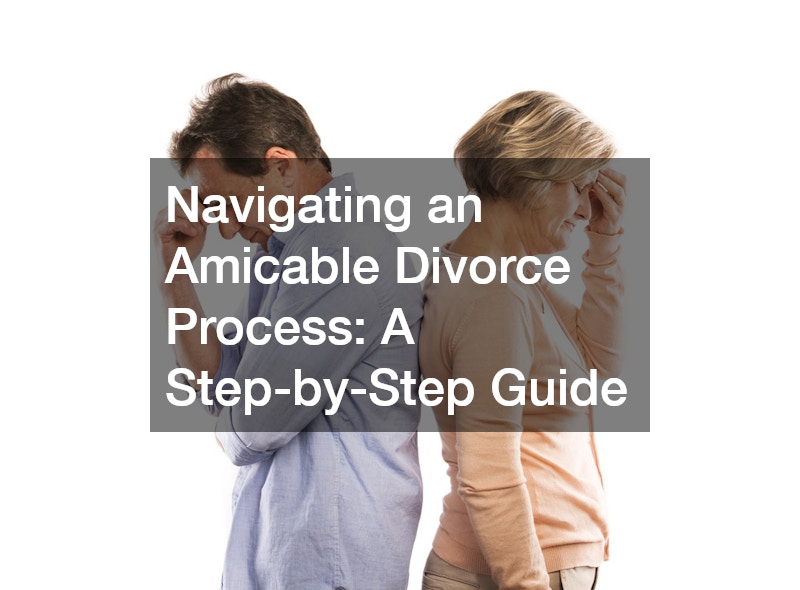Divorce can be a challenging and emotional journey, but it doesn’t have to be a battle. An amicable divorce process focuses on cooperation, respect and practical solutions, allowing both parties to reach an agreement without unnecessary conflict. By approaching the process thoughtfully, separating couples can protect their well-being, maintain positive relationships and navigate legal and financial matters efficiently. Understanding the steps involved and the professionals who can help is essential for a smoother transition.
Many Australians underestimate how complex a divorce can be, particularly when it involves property, finances or children. Without the right guidance, small misunderstandings can escalate into disputes that are costly, stressful and time-consuming. The good news is that there are resources and strategies to simplify the process. From understanding family law to engaging the right professionals, each stage can be managed in a structured way. This guide provides a step-by-step overview, offering practical tips to help you make informed decisions while keeping the process as harmonious as possible. Whether you are just starting the journey or are midway through proceedings, knowing what to expect and how to plan ahead can make a significant difference in achieving a positive outcome.
Understand Family Law

Divorce involves more than separating possessions and living arrangements. Understanding family law is the foundation of a smooth and amicable divorce process. Family law covers the legal rules that govern how couples divide property, manage finances and make decisions about children after separation. Having a solid grasp of these laws helps both parties make informed choices, reduces misunderstandings and encourages a cooperative approach. It also provides a clear picture of what to expect, so you can plan the process in a structured and less stressful way.
On a more specific level, family law in Australia sets out the steps for applying for divorce, resolving disputes over property and arranging parenting agreements. For example, you need to know how property is classified and what factors influence financial settlements. Understanding legal obligations around child custody, visitation and support can prevent conflicts and ensure decisions are in the best interests of the children. By learning the rules and processes early, you can approach your amicable divorce process with confidence and clarity, making it easier to collaborate with your former partner and the professionals involved.
Consult Your Lawyer
Seeking advice from a lawyer early in the process can save time, money and stress. A lawyer can explain the legal implications of decisions and guide you through paperwork, court procedures and negotiations. They help you understand your rights and responsibilities, which is essential for keeping the divorce amicable. Having professional guidance ensures both parties approach matters fairly and with the right knowledge, avoiding costly mistakes that could create tension.
More specifically, your lawyer can assist with preparing documents for the Family Court, reviewing agreements and advising on property or parenting arrangements. They can also explain the consequences of certain decisions, such as the timing of asset division or the impact on child support. By consulting a lawyer, you gain clarity on complex matters and can confidently take steps that align with an amicable divorce process. Even if disputes arise, having expert advice ensures that solutions are legally sound and equitable.
Hire Divorce Lawyers

Divorce lawyers specialise in the legal aspects of separation and can play a crucial role in supporting an amicable divorce process. While general lawyers provide advice on a wide range of legal issues, divorce lawyers focus specifically on resolving matters like property settlements, child arrangements and spousal maintenance. Engaging their expertise early can make negotiations smoother and help both parties feel reassured that the process is handled professionally.
In practice, divorce lawyers can act as mediators between parties, draft agreements and represent clients in court if necessary. They are skilled at identifying potential conflicts before they escalate and advising on strategies to reach consensus. Using divorce lawyers can reduce stress, provide guidance on complex legislation and help ensure decisions are fair and legally binding. This focused support contributes to a smoother, less confrontational experience for everyone involved.
Engage Tax Accountants
Financial considerations are a major part of any divorce. Engaging tax accountants ensures that property division, superannuation and income matters are handled accurately and efficiently. Their expertise can prevent mistakes that might have long-term financial consequences and provides clarity on obligations such as capital gains tax or changes to income reporting. Working with experts is a practical step, giving both parties confidence that financial matters are transparent and fair.
Specifically, they can prepare detailed statements of assets and liabilities, calculate tax obligations for property transfers and advise on strategies to minimise financial impact. This support helps ensure compliance with tax laws while promoting informed decision-making. By involving these professionals, couples can approach property settlements with certainty, avoid hidden financial surprises and maintain a cooperative approach throughout the process.
Use Mediation Services

Mediation offers an alternative to court proceedings and can be highly effective in maintaining an amicable divorce process. A mediator is a neutral professional who helps both parties discuss issues, explore options and reach mutually acceptable agreements. Mediation encourages communication, reduces conflict and can be quicker and less expensive than litigation. It is a practical way to resolve disagreements in a respectful and structured environment.
More specifically, mediation sessions can cover financial settlements, parenting arrangements and communication plans. Mediators guide discussions, clarify misunderstandings and help parties focus on practical solutions rather than blame. Using mediation can prevent lengthy legal battles, promote collaboration and support the well-being of children by fostering cooperative decision-making. For many Australians, mediation is the key to achieving a positive outcome while keeping the divorce process as amicable as possible.
Navigating a divorce requires preparation, knowledge and the right support. Understanding family law, consulting a lawyer, engaging divorce lawyers, involving tax accountants and using mediation services are all practical steps that help simplify the journey. Each professional brings expertise that reduces conflict, protects your interests and promotes cooperation. By approaching divorce thoughtfully and seeking guidance where needed, couples can manage financial, legal and parenting matters with less stress. Ultimately, an amicable divorce process is about collaboration, transparency and planning, giving both parties the best chance to move forward respectfully and confidently.
